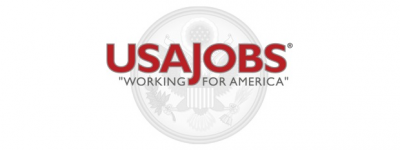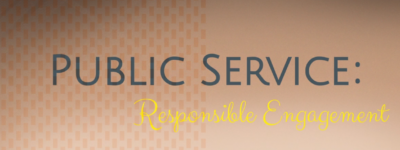The U.S. Federal Government is the nation’s largest employer and offers challenging experiences, competitive salary, and generous benefits. State, local, and tribal governments provide a wide variety of job opportunities as well.

Getting Started
When applying to federal positions, understand that each department and agency makes independent hiring decisions. The application and hiring process is also a very long one, sometimes taking up to a year or more. In addition to the lengthy application review process, gaining security clearance might be part of the hiring process. Because of these factors, begin the job search as early as 10 months prior to the anticipated start date.
Just as with work in the federal government, the requirements for state, local, and tribal positions vary. Some jobs may require a certain degree or discipline, though the majority of positions do not. Skills that are highly valued in all forms of government work include: analytical skills, research, creative thinking and problem solving, and writing and communication. GovLoop provides guidance on how to navigate the job search for state and local government positions.

USAJobs
Nearly all federal agencies post their positions through the federal government’s main online job resource, USAJobs.gov, and each agency or department may post employment opportunities on their respective websites. USAJobs.gov provides information on available jobs, instructions regarding writing a federal resume, and highlights the benefits of working for the federal government. The website shares thousands of job postings, ranging from opportunities for recent college graduates to seasoned professionals. Review the General Schedule (GS) Pay Scale to determine which positions best aligns with your qualifications. The GS Pay Scale classifies payment based on a candidate’s qualifications. Visit GoGovernment for advice on finding, and applying for, federal government jobs. OCS highly recommends that you create saved searches based on your areas of interest that are sent to you on a daily basis since many federal government jobs/internships are open for a short window. This 30 second video shows you how to save your search once you are logged into USAJobs.
Click the buttons below to check out the recordings from the on-campus visit of the Partnership for Public Service in November 2023:

Subscribe and Follow
Several federal departments and agencies advertise opportunities via social media and regularly-scheduled newsletters. Subscribe to their newsletters and follow them on Social Media. Sometimes, agencies and departments will give a very short window of notice of upcoming deadlines for open positions. Here is an alphabetical list of all U.S. Government Departments and Agencies.
Below are links to some specific agency subscription pages:
- U.S. Department of State
- U.S. Department of Defense
- U.S. House of Representatives Employment Bulletin
- National Resource Directory
- USA.gov Team
- USAID
- Library of Congress
- Consumer Product Safety Commission
- Federal Emergency Management Agency (FEMA)
- Yale Jackson Institute for Global Affairs
OCS also offers our students access to Traverse Job Board (Government & Communications).

Considerations for State, Local, & Tribal
Professional contacts and hands-on experience can be a tremendous asset when securing state, local, and tribal government jobs. Consider contacting a state representative’s office, or visiting a local government office in person or online, to begin to build professional contacts and explore job opportunities. Conducting informational interviews can be a valuable step toward learning more about what it takes to work, and secure a position, within state, local, or tribal government. Many members of congress are Yale alums. Students who are interested in pursuing congressional internships with other members of congress can explore Congress.gov to find the names, contact information, and websites for the collective body of legislators.
Other Helpful Resources to utilize:
U.S. House of Representatives – Positions with Members & Committees
U.S. Senate Employment Page
U.S. Senate Employment Bulletin
Weekly Congressional Paper – The Hill

Networking
While federal, state, local, and tribal government websites are an excellent resource, the best way to find a job in this sector of government is likely through professional contacts. Developing and maintaining professional relationships by networking within government may provide job seekers firsthand knowledge of job openings not posted on any website. Visit The Leadership Connect to search for contacts. It allows you to search by Congress, Federal Government, State / Local Government, Lobbying Firms and more. You can then filter further by Education and enter Yale to find alumni. Visit Legistorm for additional contacts where you can also filter by Education to find contact information of Staff Assistants and Yale alumni. Both resources are available to all Yale students through Yale University online library resources.

Public Service: Responsible Engagement
For those interested in public service work, whether that be through structured internship programs, post-graduate employment, community service, or volunteer work, it’s important to think about what responsible engagement looks like.
Review this page on Planning Public Service Projects to learn more about what responsible engagement looks like and how you can develop a plan that aligns well for you and the community you are hoping to serve.
Below is just a sample of the upcoming events to support your navigation of the federal job search process, and to introduce you to opportunities within multiple agencies for a variety of job functions. Please visit USAJobs.gov for even more …
Check out the videos below for guidance in navigating the federal job search process, presented by the Partnership for Public Service:
Mastering the Federal Resume: Your Key to Government Career Success
Are you looking to apply for federal government jobs …
Applicant Tracking Systems (ATS) is a term you may have heard of, and if not, you will soon.
Through the Big Interview AI Resume Review, students can upload their draft resume and a job description and receive an ATS review, …




